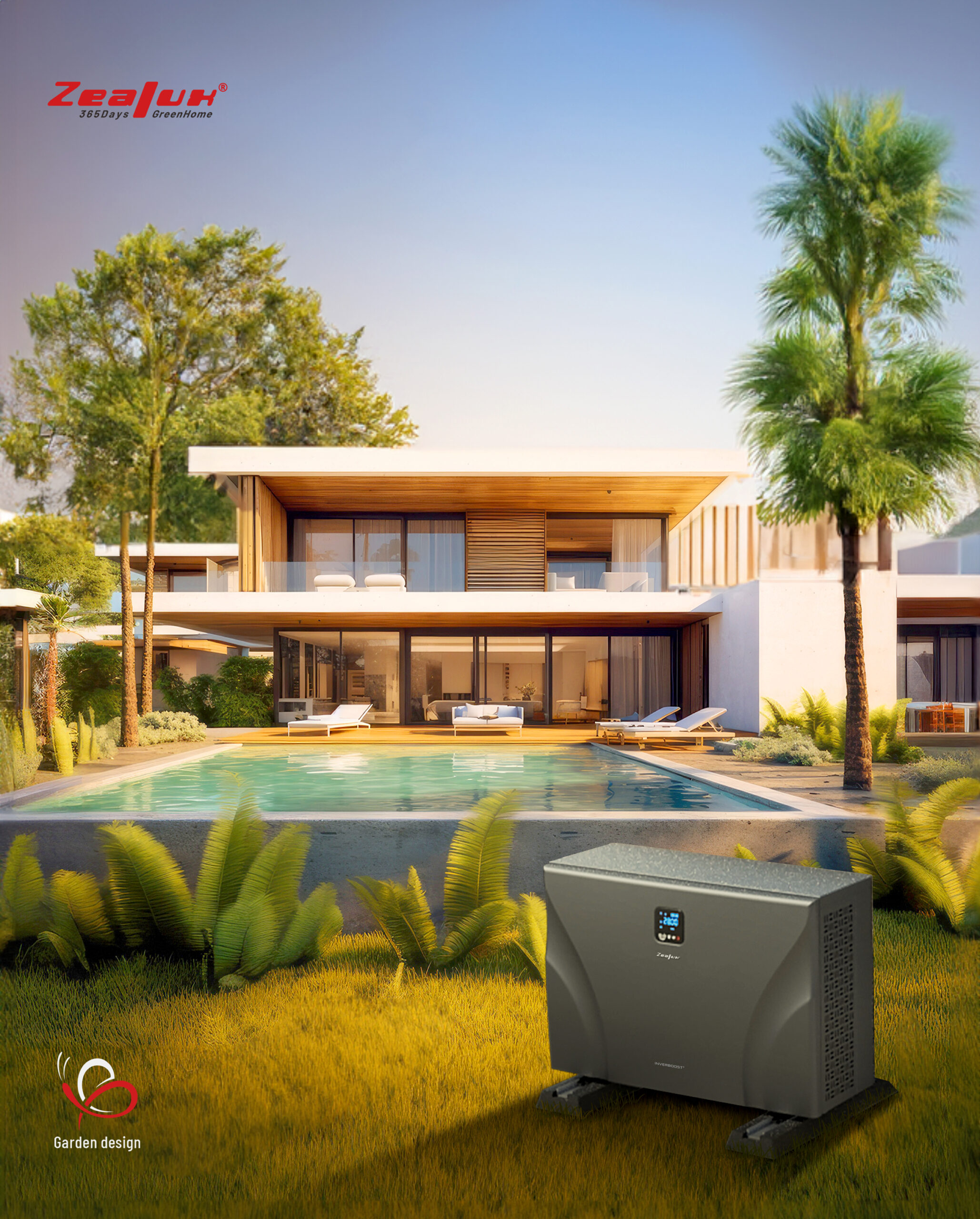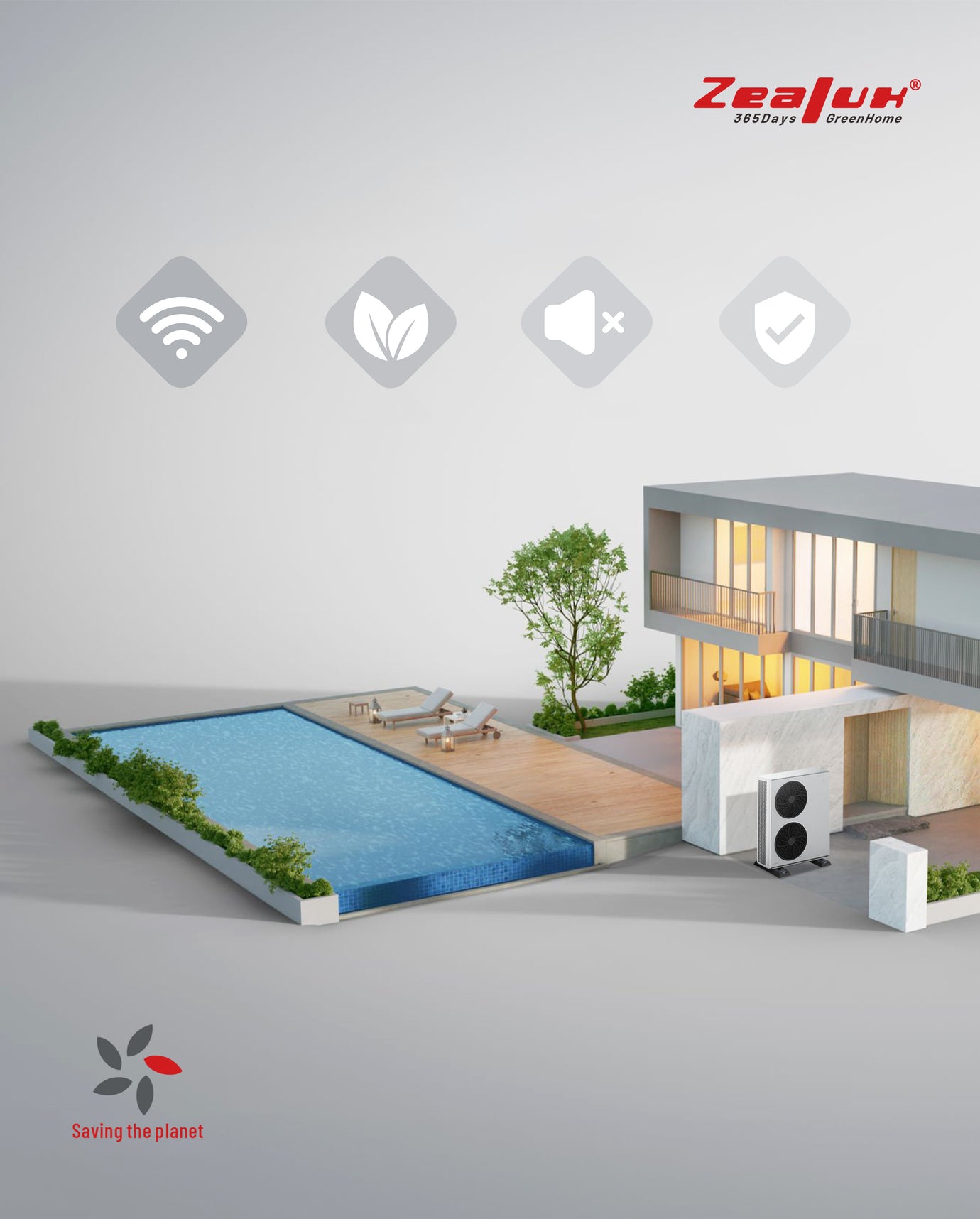5 Key Factors That Determine the Ideal Heat Pump Type for Britain's Homes
As the demand for energy-efficient and sustainable heating solutions continues to grow, heat pumps have emerged as a popular choice for homeowners in Britain. With various heat pump types available, it's crucial to understand the key factors that determine the ideal heat pump for different homes. In this article, we will explore five essential factors that homeowners should consider when selecting the ideal heat pump type. Additionally, we will highlight the importance of reliable heat pump manufacturers while introducing the benefits of inverter plus swimming pool heat pumps that offer year-round comfort for both homes and outdoor swimming pools and spas.
1. Energy Efficiency and Performance:
When it comes to selecting the ideal heat pump type for Britain's homes, energy efficiency and performance are paramount considerations. With the increasing focus on sustainability and reducing carbon footprints, homeowners are seeking heat pumps that offer optimal energy efficiency and high-performance capabilities.
Energy efficiency refers to the ability of a heat pump to convert energy into heat or cooling output while consuming minimal energy. It is measured using metrics such as the Seasonal Coefficient of Performance (SCOP) and Energy Efficiency Ratio (EER). The higher the SCOP and EER ratings, the more efficient the heat pump is in terms of output versus energy consumption.
Investing in an energy-efficient heat pump not only provides environmental benefits but also leads to significant cost savings in the long run. A heat pump provider that prioritizes energy efficiency collaborates with reputable heat pump manufacturers to offer innovative technology and advanced features that optimize performance while minimizing energy usage.
By choosing an energy-efficient heat pump, homeowners can contribute to reducing greenhouse gas emissions and combat climate change. Additionally, they can enjoy the benefits of lower energy bills, ensuring long-term savings and a more sustainable future for Britain's homes.
2. Heating Capacity and Load Calculation:
The heating capacity of a heat pump is crucial in determining its suitability for your home. A professional heat pump provider understands the importance of accurately assessing the heat load requirements of a home. Factors such as insulation levels, room size, window quality, and climate conditions all play a role in determining the heating capacity needed. By conducting a comprehensive load calculation, the provider can recommend the appropriate heat pump type and size that will effectively heat the space without compromising performance.
Choosing a heat pump with the right heating capacity is essential to avoid under or over-sizing. Undersized heat pumps may struggle to meet heating demands, leading to discomfort and inadequate temperature control. On the other hand, oversized heat pumps may cycle on and off frequently, resulting in inefficient operation and unnecessary energy consumption.
By working with a knowledgeable heat pump provider, homeowners can ensure that their heating needs are accurately assessed, and the ideal heat pump type is recommended. This careful consideration of heating capacity and load calculation ultimately leads to optimal comfort, energy efficiency, and cost savings for Britain's homes.
3. Climate Considerations:
Britain's climate is diverse, with varying temperatures, humidity levels, and weather patterns across different regions. Therefore, choosing a heat pump that can efficiently operate in the prevailing climate conditions is essential.
Heat pump manufacturers understand the importance of climate-specific designs and offer a range of products tailored to perform well in different climates. For example, heat pumps designed for colder climates have features such as advanced defrosting mechanisms to ensure optimal performance even during freezing temperatures. These heat pumps are built to withstand extreme weather conditions and deliver efficient heating when it is most needed.
In regions with higher humidity levels, heat pumps equipped with dehumidification capabilities can help maintain a comfortable indoor environment. These heat pumps effectively reduce moisture levels, preventing issues such as mold growth and improving overall indoor air quality.
By considering climate considerations, homeowners can ensure that the heat pump they choose is suited to their specific region's climate. This guarantees efficient operation, optimal performance, and reliable heating and cooling throughout the year, regardless of the weather conditions.
4. System Integration and Control Options:
When selecting a heat pump type, consider its compatibility with existing heating systems or the potential to integrate with other renewable energy sources. Heat pump providers can offer valuable insights into system integration options, allowing you to make informed decisions.
Furthermore, explore the control options provided by the heat pump. Advanced heat pumps often come with smart controls that allow you to regulate temperature settings remotely, monitor energy consumption, and optimize heating schedules. This level of control enhances convenience and energy management.
5. Application-Specific Features:
In some cases, homeowners may require specific heat pump features to meet their unique needs. For example, if you have a swimming pool or spa, an inverter plus swimming pool heat pump can provide heating during cooler months, allowing you to enjoy your pool or spa year-round. These heat pumps offer exceptional energy efficiency, ensuring that you can enjoy the benefits of your pool or spa while minimizing operating costs.
When selecting a heat pump supplier, look for those who offer specialized heat pump types suitable for specific applications. A reliable provider will understand your requirements and guide you towards the right solution for your home, whether it's for heating, cooling, or pool and spa needs.
Choosing the ideal heat pump type for your home involves considering various factors like energy efficiency, heating capacity, climate suitability, system integration, and application-specific features. Reputable heat pump providers collaborate with reliable manufacturers to offer a diverse range of options that cater to different home requirements. By partnering with a trusted provider, you can ensure that your heat pump is installed correctly and operates at optimal efficiency.
In addition, the advent of a kind of inverter plus swimming pool heat pump allows homeowners to extend their swimming season and enjoy their pools or spas throughout the year. These heat pumps provide efficient heating and ensure a comfortable experience for both summer and winter activities.
As homeowners increasingly prioritize energy efficiency and sustainability, the selection of the ideal heat pump type becomes crucial. By considering the key factors discussed in this article and relying on reputable heat pump providers and manufacturers, homeowners can make informed decisions and achieve optimal comfort while reducing their environmental impact. So, embrace the benefits of heat pumps and enjoy an energy-efficient and comfortable living environment, all year round.







